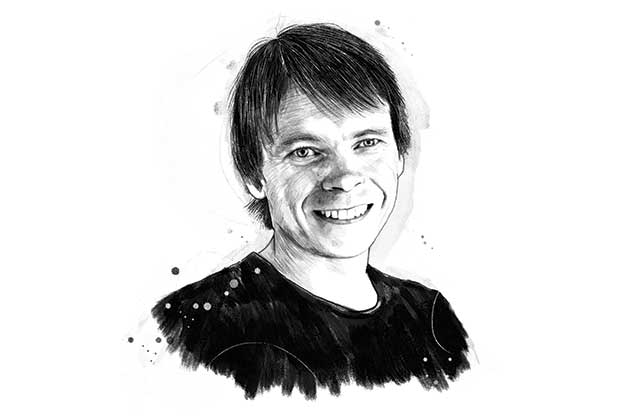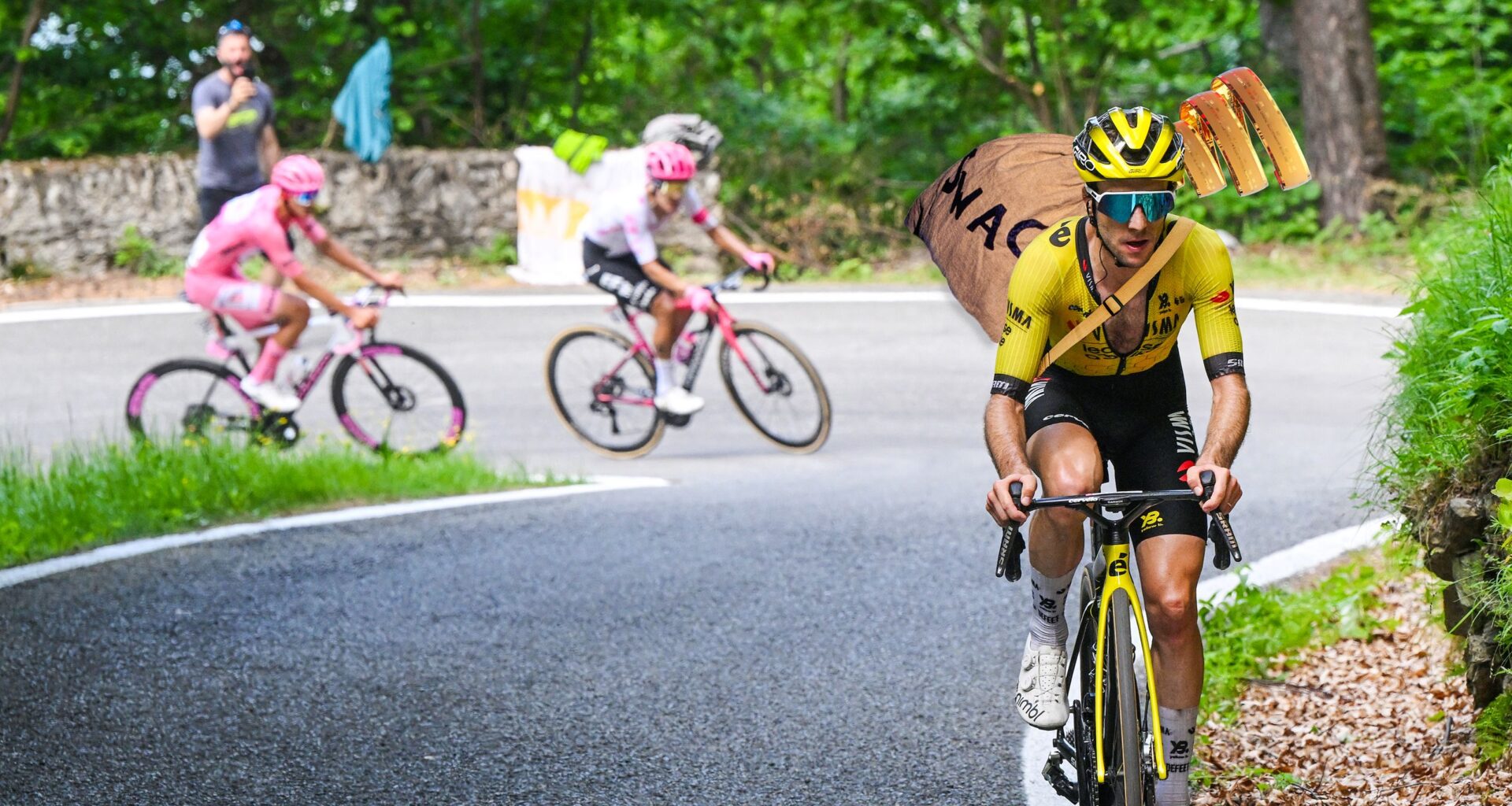I very much enjoyed the penultimate stage of the Giro d’Italia this year, as Simon Yates carried out one of the great cycle-racing burglaries of recent years on the very climb where he had a Giro title snatched out of his grasp in 2018.
There were many reasons to love it – there was Drama! Redemption! Gravel! – but the best of it was the stand-off between Isaac del Toro and Richard Carapaz. I wouldn’t want to diminish the excellent ambush Yates and Wout van Aert sprang, but there was a long section of the race where Del Toro and Carapaz performed a cycling version of Waiting for Godot:
“Someone ought to chase.”
You may like
“Yes, someone definitely ought to chase.”
Amid the hoohah about the team tactics, and the foolishness of letting a Grand Tour slip away while you look at another rider, I’d like to point out that what Del Toro and Carapaz were doing is the essence of cycling. “Someone else should do it,” is our mantra.

Michael Hutchinson
Columnist
Michael Hutchinson is a former British and Irish cyclist who specialised in time trialling. He was UK national champion over all distances, holds over 50 national titles and represented Ireland at international level. He is an award winning author, coach and aerodynamicist. His Dr Hutch column has appeared in Cycling Weekly magazine every week since 2005
My first road races, for instance, were in a local league where the teams were small, where their members didn’t like each other anyway, and no one was being paid to pretend otherwise. No one did a pedal stroke for anyone else. They didn’t even do a stroke for themselves if there was a chance it might benefit someone else. We’d all take it in turn to attack one at a time from start to finish, and the winner was the one lucky enough to be off the front when the line arrived. It was like musical chairs with crashes.
It’s not just in races. On a winter ride just a few months ago, my friend Bernard and I watched a mutual acquaintance make one of the most incompetent puncture repairs that I’ve ever witnessed. Either of us could have done it in a third the time. Either of us could have lent him a working pump.
But we glared at each other instead, willing the other to take off their nice warm gloves and assist. We were there for about forty minutes, enjoying zero-sum hypothermia while all prospect of a nice morning’s ride danced off up the road like Simon Yates.
It can be the same at the café. These days at a café-stop I generally just look after myself. That’s the result of a flat-white stand off a few years ago, where I and Bernard both sat at a table and just looked at each other, each certain in our own minds that it was the other’s turn to buy the drinks.
If you’re a member of a club, you’ll have seen a similar phenomenon there. Why do you think it’s so difficult to get anyone to marshal a club race? Or run the beginners’ club run? Or book a venue for a club social? That’s right. All these tasks should be undertaken by someone else. Other people have more energy and more time. Other people are better suited to this sort of thing. It’s very much the job of people like me to wait till they’ve done the hard work, then sashay in at the last moment, do the minimum possible, and demand as much credit as we can get. I like to think of this as “sprinting”.
While Del Toro and Carapaz might have managed to lose the Giro, they can take much comfort from the fact that they went down not so much fighting, as looking at each other. It is the true cycling way. They’ll be remembered for it long after we’ve forgotten exactly who it was who vanished up the road in a blaze of honest industry, just like a marathon runner or some other inferior sort of athlete.
How to celebrate
Celebrations are part of winning in cycling – arms in the air, all of that. However, it’s not as straightforward as it looks.
The first thing to do, and I can’t emphasise this too much, is to make sure you’ve won. There are many, many ways of making a tit of yourself celebrating, and none is more amusing for literally everyone else in the world than celebrating when a) there’s a lap to go and you have to wrap it up fast and get riding again, or b) there are riders up the road, and you’ve just gone bananas over 12th place and have to pretend that was exactly what you wanted.
The second thing to do is not fall off. That is also instant legend status – although unless you combine it with the first mistake, at least you’ll have the comfort of being a winner who looks like an idiot, rather than a loser who looks like one.
Assuming you manage all of the above, if you’re putting both arms up, try to get them symmetrical. If you don’t, you look as if you were too tired to get the second arm up far enough, and what you’re aiming for is to look effortlessly superior, not like a knackered bike rider who only just got to the line in time. Same with zipping up your jersey.
Don’t mime anything weird – making a phone call, rocking a baby, pointing at your big tactical brain. No one will understand it.
Acts of cycling stupidity
An informant tells me about his mother who has, for many years gone out for a ride most weeks with a friend – they used to race against each other in the 1980s, and the competitive spirit hasn’t totally died.
The friend recently bought an e-bike, while recovering from an operation. For the first few months it was just a playing field leveller. More recently, it’s been more of a weapon, used to set an unreasonably fast pace on the climbs.
So recently, by dark of night, my informant’s mother snuck into her friend’s garage before a ride and disconnected the charger on the bike. She plugged it in again early in the morning, so there was some charge, but not enough for the whole ride. She says the moment when it ran out, leaving her companion far from home with just a very, very heavy bike, was highly satisfying.

